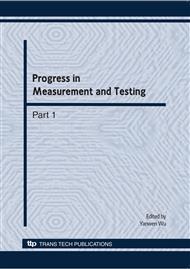p.1465
p.1471
p.1477
p.1482
p.1486
p.1492
p.1497
p.1503
p.1509
Design of Model Driven Cascade PID Controller Using Quantum Neural Network
Abstract:
PID optimal parameters selection has been extensively studied, In order to improve some strict performance requirements for complex system. A new design scheme of PID controllers is proposed in this paper. This scheme is designed based on the IMC which is a kind of the model driven controllers. The internal model consists of the full model. The full model is deigned by using the quantum neural network. The PID control system is first constructed for the augmented system which is composed of the controlled object and the internal model. Simulation and experiment results show that the method outperforms the typical model-based approach despite its simplicity and it is therefore suitable to implement in distributed control system as well as in single-station controller.
Info:
Periodical:
Pages:
1486-1491
Citation:
Online since:
May 2010
Authors:
Price:
Сopyright:
© 2010 Trans Tech Publications Ltd. All Rights Reserved
Share:
Citation:


